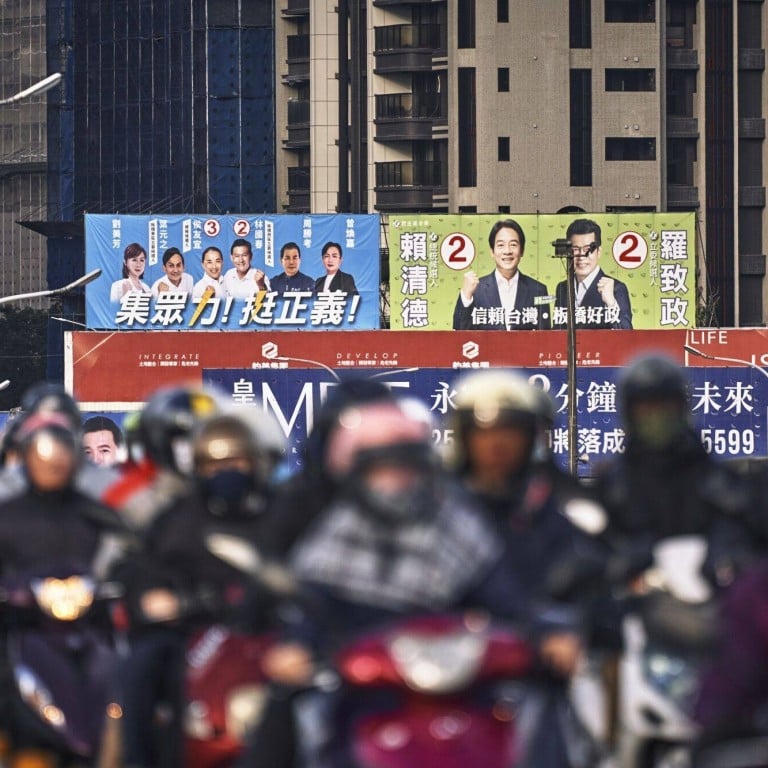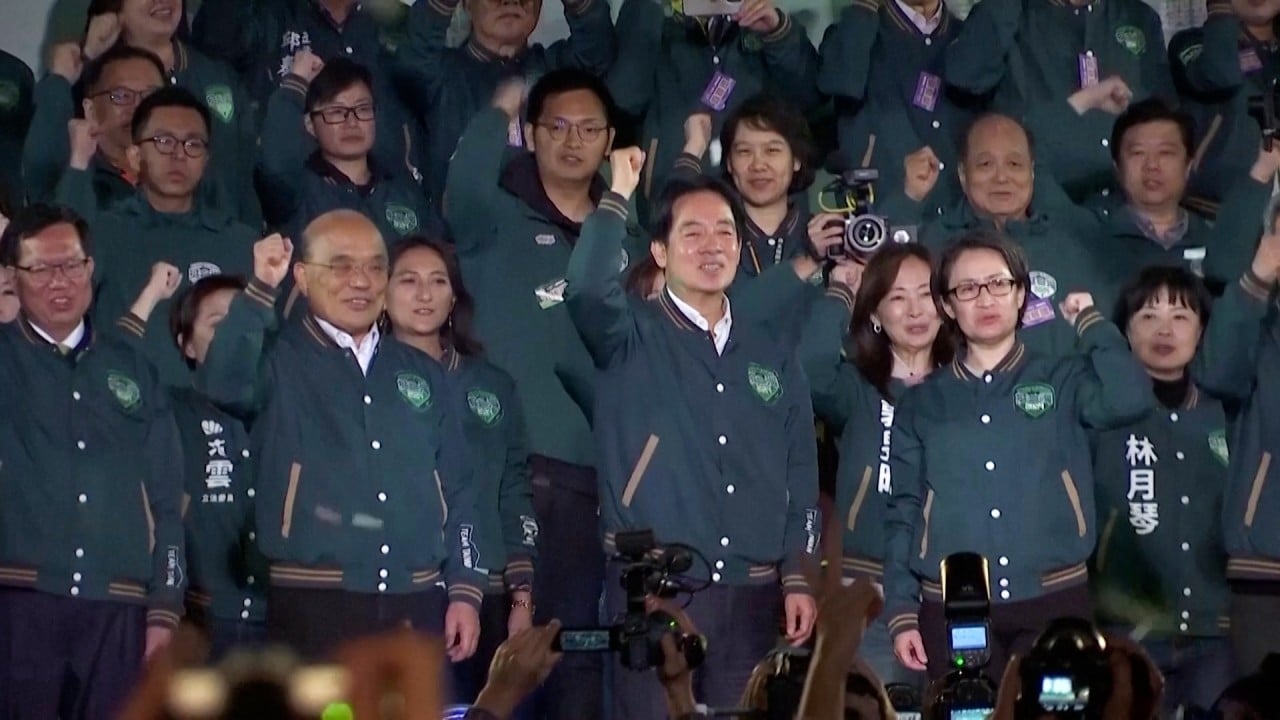
Taiwan elections 2024: president-elect William Lai faces new era with legislature in the balance
- Neither of the heavyweight parties gained an absolute majority in the Legislative Yuan, handing the TPP swing votes for the first time
- Whatever the fallout, passing bills will be much tougher for new leader Lai, analysts say
But the DPP lost its majority in the 113-seat Legislative Yuan, retaining just 51 of its previous 61 seats while the KMT added 14 to have 52 lawmakers.
“This is a completely new scenario,” Ku Chung-hwa, a national policy adviser to President Tsai Ing-wen, said at a post-election forum in Taipei on Sunday morning.
“While having won the presidential election, the DPP is actually in a situation where it is a minority in both popular votes and in the legislature,” Ku said at the event hosted by Citizen Congress Watch, an independent watchdog.
It is the first time in 16 years that no party has had an absolute majority in the legislature, and the first time that a third party – the TPP with eight seats – has had a swing vote.
The two remaining seats went to independents.
As he claimed victory in Taipei on Saturday night, Lai addressed the need to work across party lines, calling for “communication, consultation, participation, and cooperation” under “a new structure of the legislature”.
“In order to play the role of a critical minority, the TPP will not work with a fixed side. We will cooperate with whoever is right,” Ko said.
The TPP was in talks with the KMT to run on a joint ticket in the weekend’s presidential election but the efforts collapsed in late November. It frames itself as neither blue, like the KMT, or green, like the DPP, but in its own “white” camp.
The fragmentation of the electorate leaves open the question of just how far Lai and his party will be able to pursue their agenda.
Analysts will be looking for immediate signs when lawmakers convene for their new term on February 1 to vote for the next legislative speaker.
Former Kaohsiung mayor and 2020 KMT presidential candidate Han Kuo-yu is widely expected to put his hat in the ring, as is the TPP’s Huang Shan-shan and incumbent speaker Yu Shyi-kun from the DPP.
Chen Li-fu from Aletheia University in Taipei told the Taipei forum that the KMT would need the TPP’s support to get Han across the line.
“But the TPP also has a lot of bargaining power and could back whichever party agrees to have their candidate as the deputy speaker,” Chen said.
Ku agreed that the TPP was in a key position.
“It could be that whatever it agrees with could become the policy … but I am not so worried, because the Legislative Yuan is totally transparent,” he said.
“With the people watching, political parties might be even more motivated to come up with policies that reflect a wider spectrum of people’s needs.”
Su Tzu-chiao, a politics professor at Soochow University in Taipei, was less optimistic.
He said the DPP could find it “extremely difficult” to operate as a ruling party if the blue and white camps formed a coalition.
“The executive branch could completely lose autonomy if the blue-white coalition is strong,” Su said.
“All the policies the governing DPP wants to pass could be blocked, while all the policies from the opposition parties would go forward.”
National Chengchi University politics professor Hsiao Yi-ching said there was another possibility – the TPP might not cooperate with either.
“I don’t think TPP would want to work with anyone,” Hsiao said.
“In the past, when any smaller party worked with a bigger party, it was easy for them to be labelled as pan-green or pan-blue, and ultimately be swallowed into their camps.
“The difference between the seats that the KMT and DPP have in the legislature is not that big. Both parties will be very motivated to lure support from the TPP, and I believe there will be cooperation on a case-by-case basis instead of a fixed coalition.”
Taiwan election: results sound early knell for opposition hopes
Chang Chun-hao, a political scientist at Taipei’s Tunghai University, said there were more Beijing “proxies” in the legislature to push forward more Beijing-friendly bills.
“There is a likelihood of seeing more bills passed favouring communication and exchanges with China, for example those related to having Chinese tourists and students,” Chang said.
Whatever the dynamics, analysts agree that it will be much harder to pass any legislation.
Chen from Aletheia University said he expected there would only be substantial cooperation on regular bills such as the budget.
There were few surprises in the legislative elections on Saturday. The long-standing north-south divide remains, with the north generally more pro-KMT and the south leading towards the DPP.
The exception was the former DPP stronghold Taichung, where the KMT gained four more seats to claim six of the eight in the electorate.
Analysts say the popularity of Taichung mayor Lu Shiow-yen, or “Mama Lu”, from the KMT influenced the outcome.
“But these single member seats are always pretty easy to overturn. It really depends on the ground work sometimes, ” said Lai Jung-wei, a political observer who runs the Taiwan NGO Taiwan Inspiration Association.
“Right now, the political parties are already on their way to plan for local elections in 2026.”


